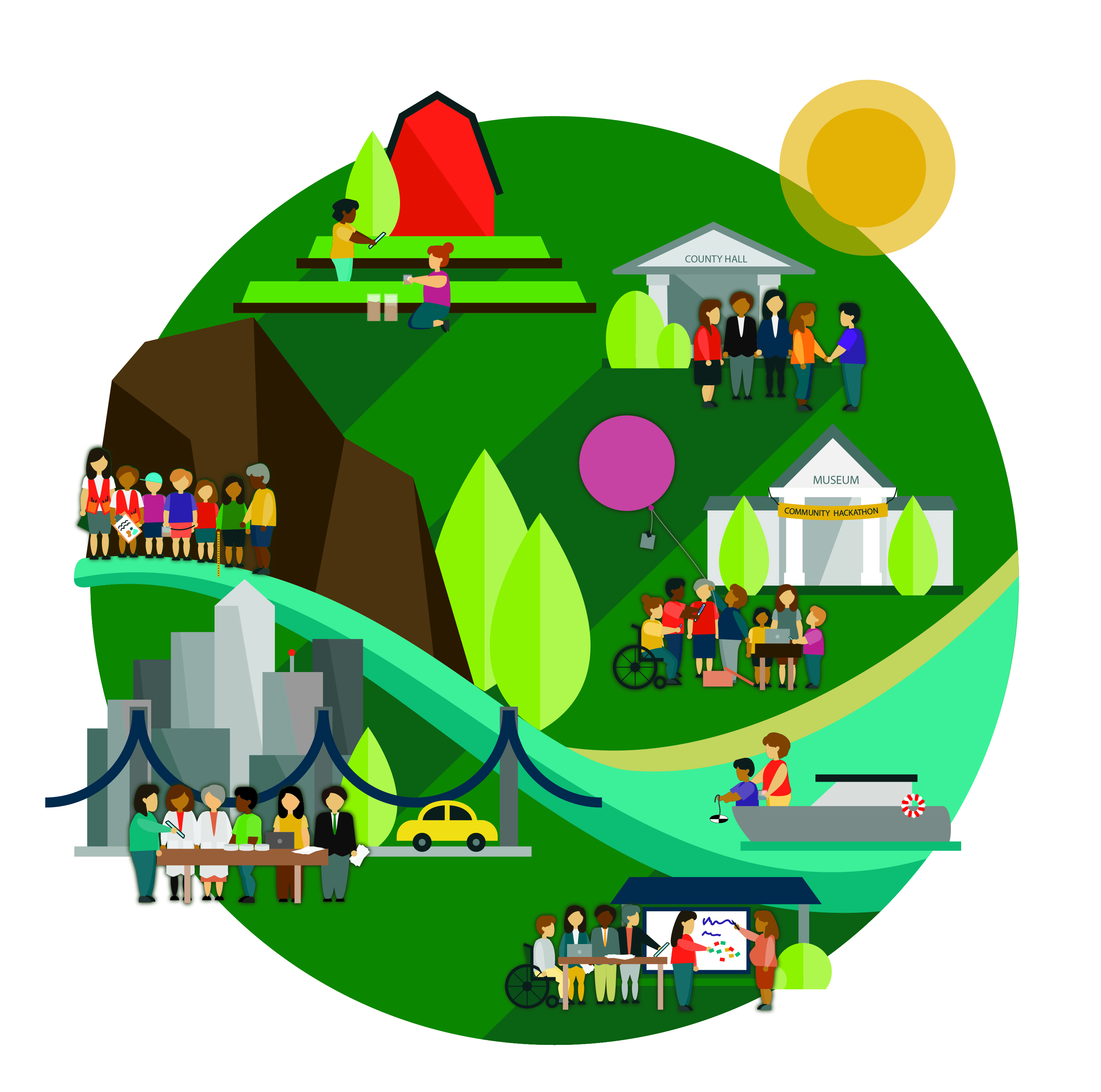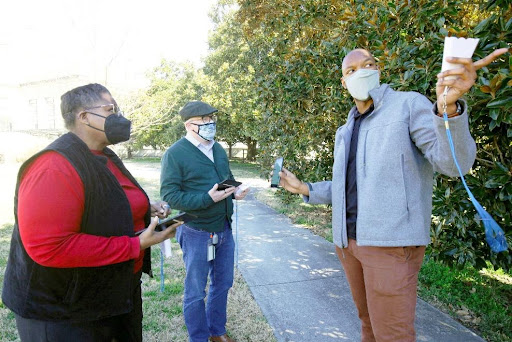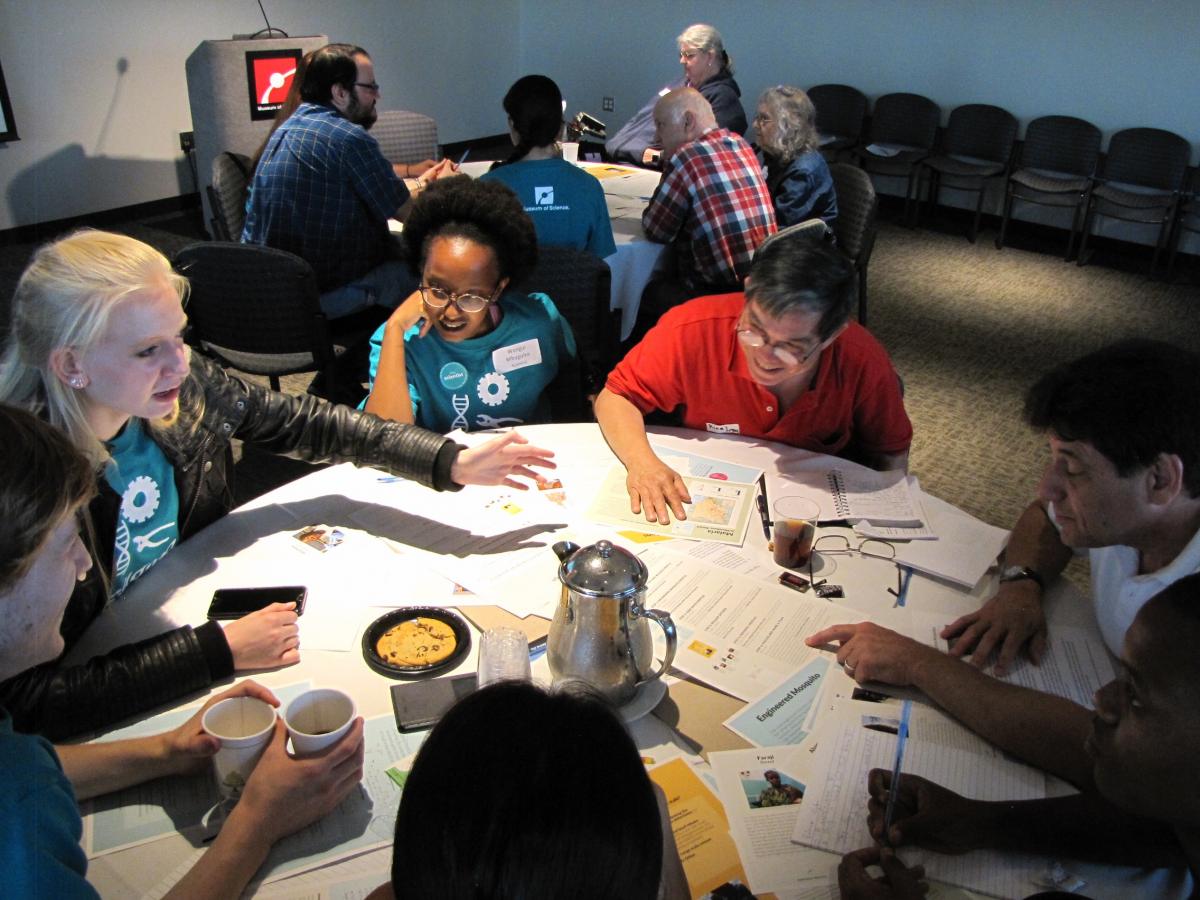
December 13th, 2021
About the Author: Laura Bartock is the Community Science Fellow at the Association of Science and Technology Centers (ASTC). ASTC’s Community Science Initiative is comprised of several new and interlinked philanthropically-funded programs to connect and support members in building capacity for their own community science work. CAISE is funded by a cooperative agreement between the National Science Foundation and ASTC.
As communities work together to face global and local challenges, and as the role of science and technology in our society continues to evolve, it is more important than ever for all people to have the opportunity to engage with, participate in, contribute to, and benefit from science, technology, and innovation. Community science approaches often involve powerful partnerships that generate new questions, ideas, and solutions to make meaningful progress on community priorities, with a focus on equity and sustainability. Community science brings together disparate—and often marginalized—groups to co-construct sustainable solutions to improve community well-being and to create mutually beneficial relationships.

Devin Jefferson, Community Catalyst at the Science Museum of Virginia, works with members of the Richmond community to gather data for community science projects focused on air quality and heat islands.
ASTC has launched a new website for our Community Science Initiative to support our members in leveraging community science approaches so they can join their communities in co-constructing solutions. With community science, community members collaborate to conduct and leverage scientific research and technological innovation to advance community priorities and benefit from the knowledge and advancements of science and engineering, often in partnership with scientists and science-engagement practitioners. For science and technology centers and museums, and other science engagement organizations, community science is an emerging practice that they can use to fulfill their missions to advance lifelong science learning, connect science and society, engage diverse audiences, and partner to solve local and global challenges.
● Visit our website to explore ASTC’s framework of community science attributes and outcomes along with a searchable library of resources and examples of community science in action—and find future opportunities for training and funding.
● Explore our resource library, which includes promising examples and experimental models of community science, including tools from the NOISE Project and Building with Biology projects developed with National Science Foundation Advancing Informal STEM Learning program funding.
● Check out our toolkit for Dialogue & Deliberation, which outlines key skills and methods for engaging community members in discussions that surface or refine community priorities and support decision making around difficult complex societal challenges at the intersection of science, technology, and human well-being.
● Join our online Community of Practice to connect with other science engagement professionals and share questions, challenges, expertise, and resources.

In the summer of 2016, Building with Biology launched more than 200 dialogue events at museums, science centers, universities, and other organizations to explore the societal and ethical implications of synthetic biology research and application. These “forums” also fostered a community of informal science educators, researchers, and scientists looking to build capacity in deliberative programming.
Our aim is that this platform will support science and technology centers and museums, and allied institutions of science learning and engagement, in exploring and expanding the ways they engage with their community members. Community science provides another method for partnering with communities – one that allows science engagement professionals to grow their competencies around socio-scientific issues and in supporting communities in taking science-related action. We believe our members and partners can leverage their power as trusted conveners and community spaces, as well as their connections to the research and academic communities, to bring together members of their local community to work toward shared goals.
